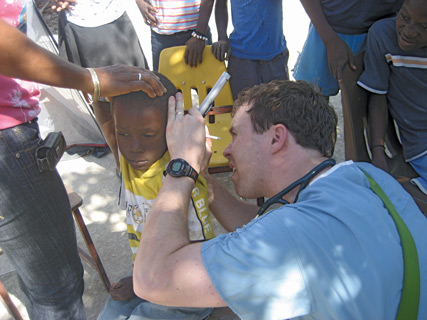Coding for anticoagulation as tricky as managing it
Diagnosis, lab tests and management make up the three key considerations when coding for anticoagulation management through Medicare. An expert sorts out the issues and scenarios for a variety of scenarios.
One of the trickiest coding scenarios for physician practices is anticoagulant therapy. There are essentially three parts to coding: diagnosis, lab tests and anticoagulation management. Payment policies differ among government and private insurers. This article will focus on the Medicare coding and payment policies.
Q: When I bill for a prothrombin time test using the Current Procedural Terminology (CPT) code 85610, my reference laboratory wants me to provide an International Classification of Diseases, Ninth Revision (ICD-9) code for the disease process (e.g., atrial fibrillation, pulmonary embolism) as the primary diagnosis. Is this correct?
A: Not for Medicare claims. Contrary to what is published in the 2010 ICD-9-CM, Medicare instructs that physicians should report ICD-9 code V58.61, long-term (current) use of anticoagulants, as the primary reason for ordering a prothrombin time test. Physicians should report the ICD-9 code indicating the condition for which an anticoagulant is prescribed as a secondary diagnosis. ICD-9 codes 427.31 (atrial fibrillation) and 415.10 (pulmonary embolism and infarction) are examples of codes that could be used as secondary diagnoses.

ICD-9 code V67.51 (following completed treatment with high-risk medication, not elsewhere classified) should be reported only after patients have completed their drug treatment, but not while they are still in therapy.
Q: What code should I use to report the lab test itself? Is the lab test reimbursable to the physician?
A: When physicians use a prothrombin time test (reported with CPT code 85610) to monitor patients on anticoagulant drugs, Medicare pays the entity that performed the test. Its payment for the test is based on the geographically specific laboratory test fee schedule. The prothrombin time test, billed as CPT 85610-QW, is payable to the physician if he or she operates with a CLIA certificate of waiver. The QW modifier indicates a CLIA-waived test.
Q: How does Medicare pay for anticoagulant therapy?
A: Anticoagulant monitoring services that are bundled into payment for an evaluation and management (E/M) service include interpreting test results, evaluating the patient and adjusting dosages. The following scenarios illustrate how Medicare reimburses physicians for anticoagulant monitoring management:
Separate billing for anticoagulant monitoring management by phone. A physician who calls a patient to relay test results and schedule the next prothrombin time test cannot bill a separate E/M service. Medicare does not pay separately for the telephone contact with patients. Instead, it includes an assigned value for typical telephone follow-up associated with a patient visit in the overall payment for the separately billable E/M service. In other words, Medicare payment for time spent phoning a patient is included in the amount physicians receive for the face-to-face encounter that preceded the call.
Billing for the lowest-level office/outpatient E/M service, CPT 99211. Physicians can bill CPT 99211 when a nurse (or other office personnel) meets with a patient in the office to discuss the prothrombin time test results and schedule the next test. To bill using CPT 99211, the physician does not have to be present, but should be available if needed.
Billing for a low- to mid-level office/outpatient E/M service, CPT 99212-99213. Physicians can bill a low- to mid-level E/M service if they discuss the prothrombin time test results with the patient during an office visit. A physician may choose to personally relay the results if he or she needs to evaluate the patient and adjust the anticoagulant drug dosage.
Billing for a mid- to high-level office/outpatient E/M service, CPT 99213-99215. Physicians can bill a mid- to high-level E/M service if they discuss the prothrombin time test results with the patient during an office visit for an unrelated problem. The physician should consider the prothrombin time test-related activities of relaying results and adjusting dosage when determining the appropriate level of service to bill for evaluating and treating the ailment that brought the patient to the office (e.g., hypertension, arthritis). The prothrombin time test-related activities are likely to warrant billing a higher level of service than is appropriate for evaluating and treating an acute illness or monitoring a chronic condition alone.
CMS will not separately pay for CPT codes 99363 and 99364 because the agency considers the services to be bundled into the E/M codes that physicians already report.
Although CPT established codes in 2007 to describe the work of actively managing anticoagulant therapy for the first 90-day period (CPT code 99363) and for the subsequent 90-day period (CPT code 99364), Medicare does not reimburse separately for these codes. It has opted to maintain the payment policy that has been in place since before the anticoagulation management codes were introduced.
Q: How do I code for a non-Medicare patient who is being treated with warfarin?
A: The CPT codes are intended for the active management of a patient on anticoagulation (warfarin) and require the physician to submit a bill every 90 days.
CPT code 99363 is to be used after the initial 90 days of outpatient warfarin therapy. The code is intended to reimburse the physician work involved in adjusting warfarin levels based on a review of a patient's international normalized ratio (INR) measurements. The code language requires that a physician record at least eight INRs in the 90-day period in order to report the code. Any work that a physician performed related to this management cannot be considered when determining the level of any E/M code reported during this time period. The physician should bill the code on the 90th day of management.
CPT code 99364 is very similar, but is to be used for subsequent 90-day periods of management and only requires three INR measurements during these time periods.
Despite these guidelines, coding and payment policies of non-Medicare insurers may still vary. They might or might not reimburse separately for the anticoagulant therapy management CPT codes 99363 and 99364. Physicians should check with insurers to determine their payment policies.




